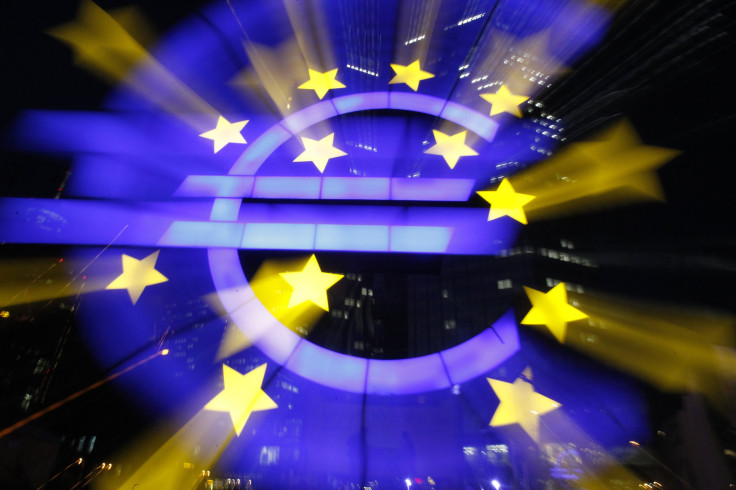Euro Zone Economy Set To Contract Further In 4Q

The euro zone economy looks set to contract for the third straight quarter in the final three months of 2012, the Eurocoin indicator compiled by the Center for Economic Policy Research and the Bank of Italy showed Friday, underscoring the challenges ahead for the single currency bloc as its debt crisis enters another year.
The Eurocoin indicator, which estimates euro area's actual gross domestic product growth, excluding seasonal variations and volatility in output, moved up to -0.27 percent in December from -0.29 percent each in November and October. The indicator is one of the earliest measures of growth in the currency area.
The euro zone economy shrank for six straight months to the end of September and the negative Eurocoin reading suggests it will shrink again in the October-December period, even if the pace of decline appears to have slowed a little in December.
The CEPR and the Bank of Italy said the small improvement this month reflected an easing of tensions in financial markets, as well as business surveys that were less negative than in previous months.
Figures published by the European Union's statistics agency earlier this month showed the combined GDP of the 17 countries that share the euro fell by 0.1 percent in the third quarter from the second, and by 0.6 percent from the same period in 2011. That confirmed Eurostat's first estimate, which was released in November.
Official data published in the past few weeks showed the fourth quarter got off to a weak start.
In the 17 countries that use the euro, exports fell 1.4 percent in October from September, while imports rose 0.6 percent. Germany, France, Ireland, Italy and Greece, among other countries, saw their exports decline.
Meanwhile, euro zone factory output continued its steep fall, underscoring the feeble domestic demand that risks prolonging the bloc's recession. Households are not spending and hence companies are not selling, forcing them to cut staff, which then further weakens consumption.
Germany, France and Italy, which make up two-thirds of the euro zone's industrial production, all saw their factory output contract for the second consecutive month in October, with Germany, the euro zone's largest economy, falling the most.
Adding to the gloom, labor ministry data on Thursday showed the number of people out of work in France rose for the 19th consecutive month in November to reach a nearly 15-year high. A day later, France trimmed its third-quarter growth reading to 0.1 percent from 0.2 percent previously.
INSEE predicted in its quarterly economic outlook last week that the French economy would grow just 0.1 percent in the first and second quarters of 2013, a level that is below the government's 0.3 percent target and down from 1.7 percent growth in 2011.
Looking on the bright side, German Finance Minister Wolfgang Schaeuble believes the worst of the euro zone debt crisis is over.
“I believe the worst is past,” Schaeuble told the daily newspaper Bild. "The government in Athens knows that it cannot financially overburden other euro zone countries. They are thus pushing forward with the reforms."
Schaeuble also said he was optimistic about France and its efforts to stop its debt burden expanding.
"I am certain that France will fulfill its obligations," he said. "The government definitely knows that every country has to permanently pursue reforms to remain competitive."
Schaeuble added that Germany's economy will expand at a decent rate next year. "The situation is better than we thought because among other things, business with the United States and Asia is stronger. The German economy will therefore grow decently in 2013,” he said.
Echoing Schaeuble’s comments, European Governing Council member Ewald Nowotny on Friday welcomed the launch of a permanent rescue fund for struggling euro zone countries, a framework for common bank supervision by the European Central Bank, and a deal to continue supplying aid to Greece.
“Altogether these are important measures that allow for cautious optimism for a way out of the crisis in 2013," Nowotny said in a statement.
© Copyright IBTimes 2024. All rights reserved.












